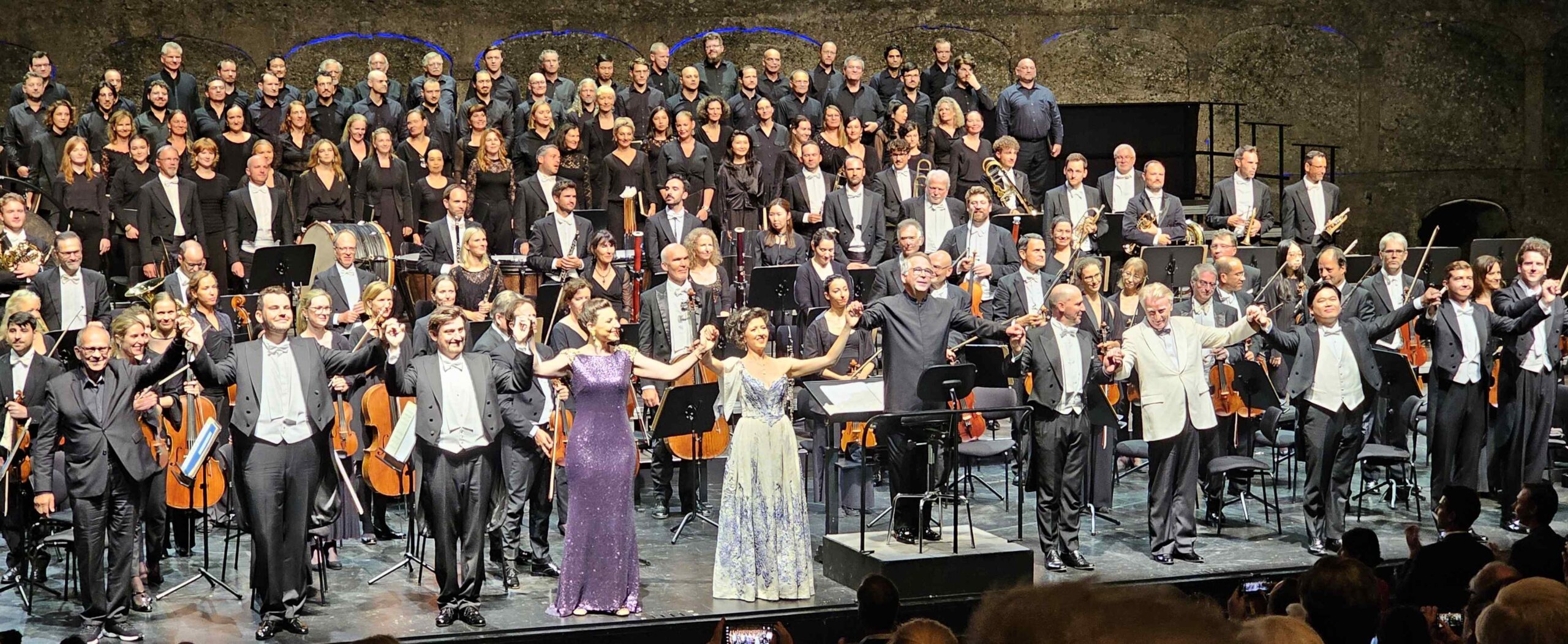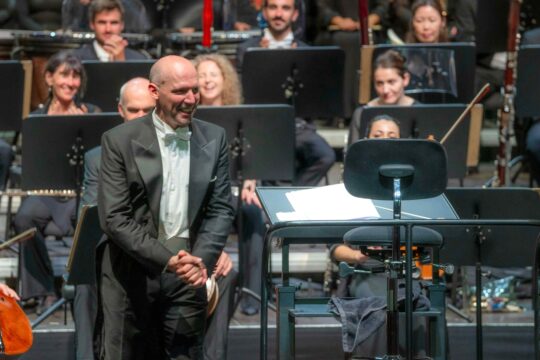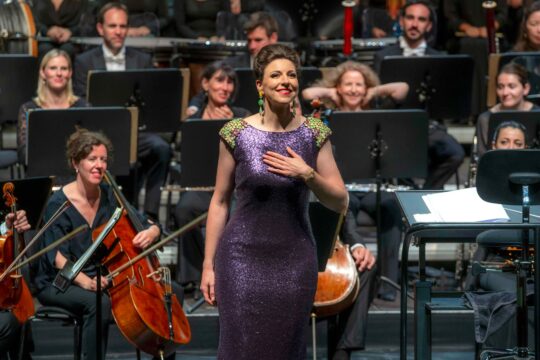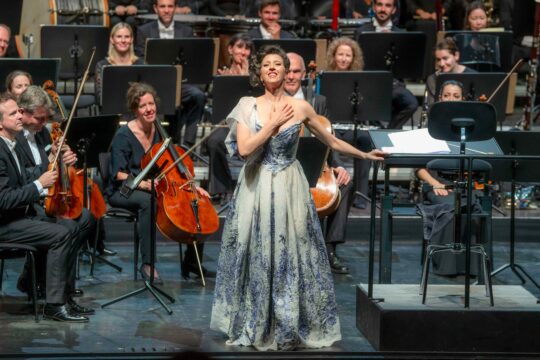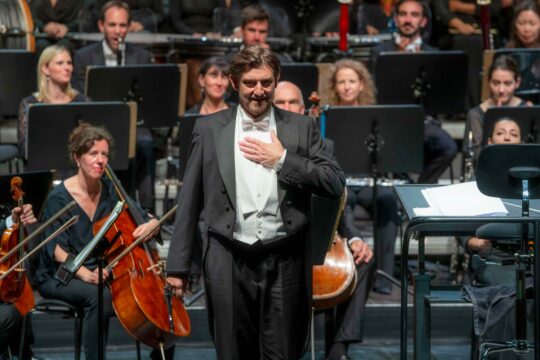The End of an Unjust Purgatory
« There are two kinds of music, the good and the bad. And then, there’s the music of Ambroise Thomas, » so declared Emmanuel Chabrier, composer of L’Étoile and Le Roi Malgré Lui. Heaven knows how many keen minds and so-called « enlightened » musicologists have criticized Ambroise Thomas’s music, accusing it of being « too easy » and « excessively prolific »! His work fell into obscurity after his death in 1896 and entered a long purgatory for decades (though, in truth, was it not the same for Meyerbeer?). However, Hamlet (1868) has now regained favour. One must acknowledge that all the attractions of the score, where perfectly inspired melodies alternate with an in every way effective dramatic force, place this work among the most significant of the great French operas of the 19th century. Its national and international recognition in recent decades rectifies the injustice of a certain era.
Hamlet’s « renaissance » in the most eminent international theatres
In 1983, Richard Bonynge recorded a complete version of Hamlet with Sherrill Milnes and Joan Sutherland. In January 1993, the Opéra de Monte-Carlo cast Thomas Hampson in the role of the Prince of Denmark. In June 2000, the Théâtre du Châtelet in Paris brought together for the occasion Thomas Hampson, Natalie Dessay, and José Van Dam. In 2003, Simon Keenlyside left his mark on the role at the Royal Opera House in London alongside Natalie Dessay, and then again in 2010 at the Metropolitan Opera in New York. A co-production by the Opéra de Marseille (2010) and the Opéra du Rhin (2011) presented Hamlet in a staging by Vincent Boussard with Franco Pomponi and Stéphane Degout in the title role (The Opéra de Marseille repeated the production in 2016 with Jean-François Lapointe). At the Theater an der Wien in 2012, Olivier Py staged Hamlet with Stéphane Degout, a production that was also seen at La Monnaie in Brussels in 2013. In December 2018, the Opéra Comique in Paris staged Hamlet with Stéphane Degout and Sabine Devieilhe in a production directed by Cyril Teste (revived in 2022) (broadcast on television and released on DVD). More recently, in March 2023, Krzysztof Warlikowski offered his own vision of the work at the Opéra de Paris with Ludovic Tézier, Lisette Oropesa, Eve-Maud Hubeaux, Jean Teitgen, and Clive Bayley (the latter four reprising their roles in the Salzburg production).
This enumeration, which by no means claims to be exhaustive, demonstrates, if further proof were needed, that Ambroise Thomas’s opera is no longer confined—far from it—to its purgatory and undoubtedly deserves to remain firmly within the rich repertoire of French lyric works.
Hamlet at the Salzburg Festival: The Undeniable Virtues of a Concert Version
The Felsenreitschule (Riding School or « Rock Riding Hall ») hosted Hamlet in a concert version, among numerous other productions. Of the three works we attended (Les Contes d’Hoffmann by Offenbach and The Gambler by Prokofiev), it was undoubtedly Hamlet that garnered the most significant success. In such a vast hall—and with an audience that is not always demonstrative—seeing all the spectators standing, applauding, and cheering the principal performers, the orchestra, and the chorus for an extended time is a rare event, particularly considering that this work is not especially familiar to Germanic audiences.
It must be said that the level achieved at what can be considered one of the most prestigious festivals in the world is astonishing, thanks to two exceptional ensembles: on one hand, the Salzburg Mozarteum Orchestra, which was magnificent that evening and proved itself equal to the Vienna Philharmonic Orchestra, and on the other hand, the Vienna Philharmonia Choir, which can undoubtedly rival the most remarkable choirs on the planet.
Another thought comes to mind: today’s opera productions, many of them, are far from achieving consensus among audiences and critics alike. Regietheater has left its mark, with certain undeniably positive aspects but also with its excesses, its « tics, » its extravagances. Certainly, some works can be updated with undeniable success to make them more accessible to contemporary audiences, and eternal myths—like those of Don Juan or Romeo and Juliet, which truly belong to all times (and all places)—can easily withstand a skillful transposition. But since this process often turns into a system, we sometimes encounter absurdities, especially since certain directors tend to unfortunately delve into abstraction, miserabilism, or vulgarity.
A Skillful « Staging »
We have written on several occasions in our columns: the concert version has the advantage of focusing the audience’s attention entirely on the music and singing. Here—just as at the Aix-en-Provence Festival last season for Verdi’s Otello—the performers are not, as is often the case, glued to their scores, since there are no music stands. Each soloist can truly « interpret » their role with entrances, exits, and confrontations that fit within a « theatricalized » process (indeed, it is more accurate in this context to describe this version as « staged » rather than merely a « concert version »), to the point that the ghost of the king appears at the top of one of the many alcoves that form the backdrop of this Rock Riding Hall. The very setting effectively traps the characters in an oppressive huis clos, where madness and death coexist from nearly the first to the last scene.
Moreover, the perfect visibility of the orchestra allowed us to appreciate all the more the masterful interventions of certain instruments, such as the trombone solo that opens the second tableau of Act I (before the appearance of the king’s ghost), the saxophone in the second tableau of Act II at the arrival of the troupe of actors summoned by Hamlet, and the clarinet solo before Ophelia’s great mad scene in Act IV.
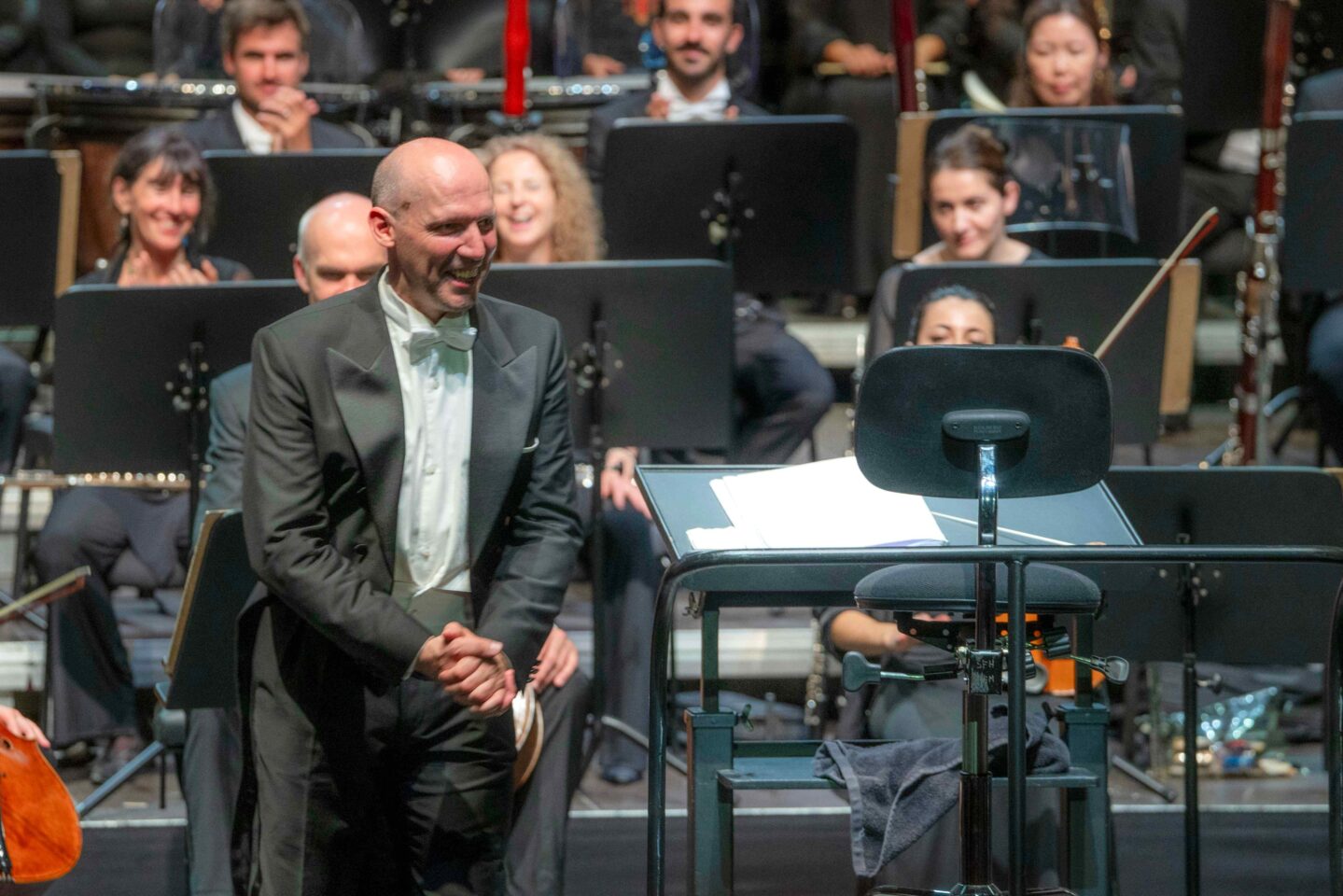
The Success of a New Generation of Highly Talented French Artists
An entire new generation of French artists, who are bringing our repertoire to international theatres, is gathered here—a great source of satisfaction.
At the forefront is Stéphane Degout in the title role. His portrayal of Hamlet is well-known, having performed it successively in Strasbourg, Vienna, Brussels, and Paris, alongside Sabine Devieilhe as Ophelia (with television broadcasts and a DVD release). The French baritone enjoys great success on all the major international stages in numerous roles and various repertoires (he will soon be appearing at the Opéra de Lyon in Alban Berg’s Wozzeck). His extensive musical, operatic, and theatrical experience has led him to an exceptional mastery of phrasing and a profound understanding of roles, akin to a theatre actor. He delivers a Hamlet with all the required nuances—feverish, introverted, seamlessly integrating the madness inherent to the character—supported by sovereign articulation and diction, the uniformity of timbre across his entire range, and an extraordinary sense of phrasing. A model of the art of singing, capable of encompassing everything from bravado to the faintest whisper. His voice knows how to be subtle in murmurs and resplendent in fits of anger or rage. His timbre is reminiscent of one of the great French baritones, Robert Massard.
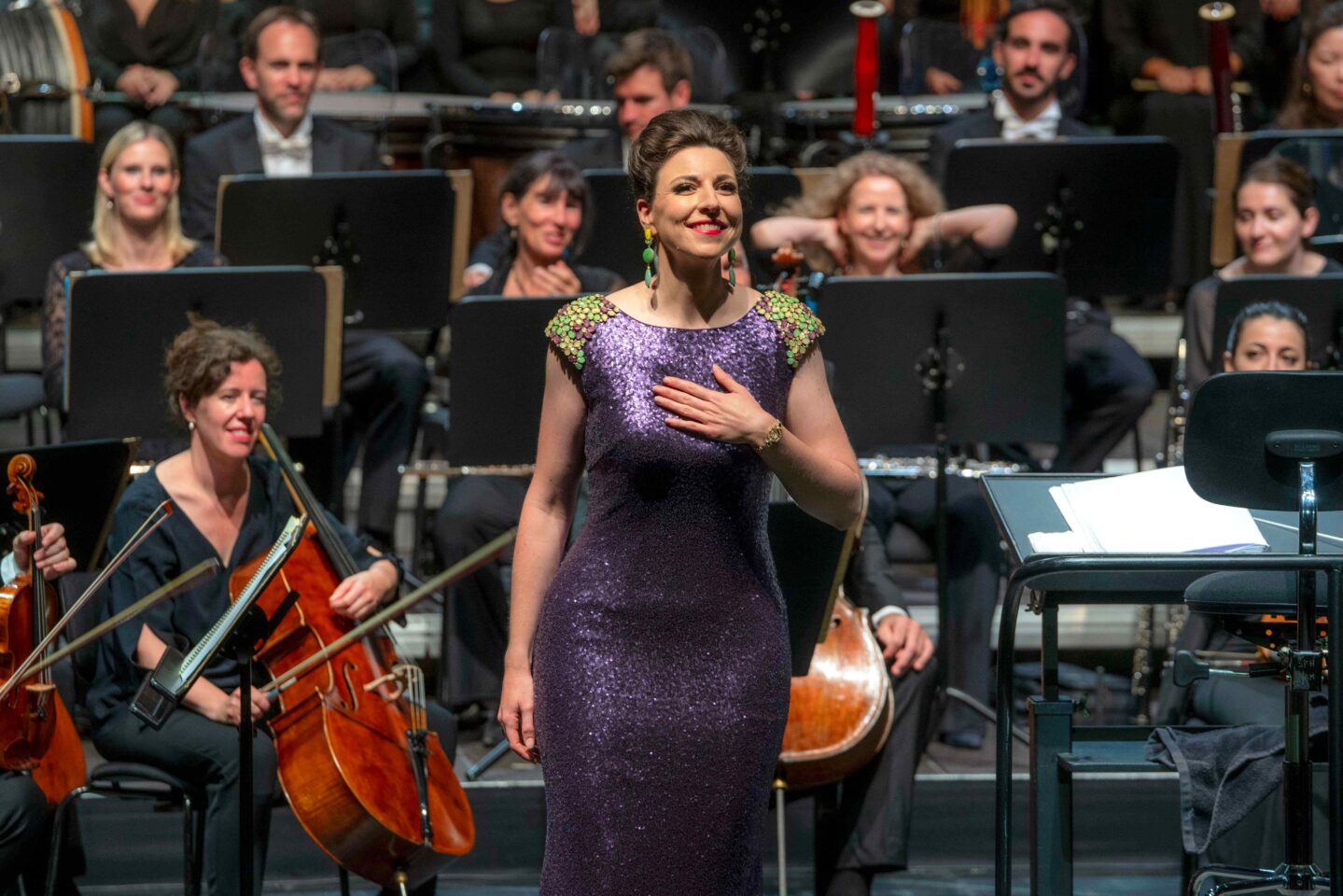
The undeniable revelation of the evening was Eve-Maud Hubeaux as Queen Gertrude. The Franco-Swiss singer, now pursuing an international career (her Amneris in Aida was noted in 2022, as well as a thrilling Eboli in Don Carlos at the Vienna State Opera), impressed with her powerful and wide-ranging voice in a role fraught with vocal challenges, particularly in the violent and pathetic scene where she confronts her son.
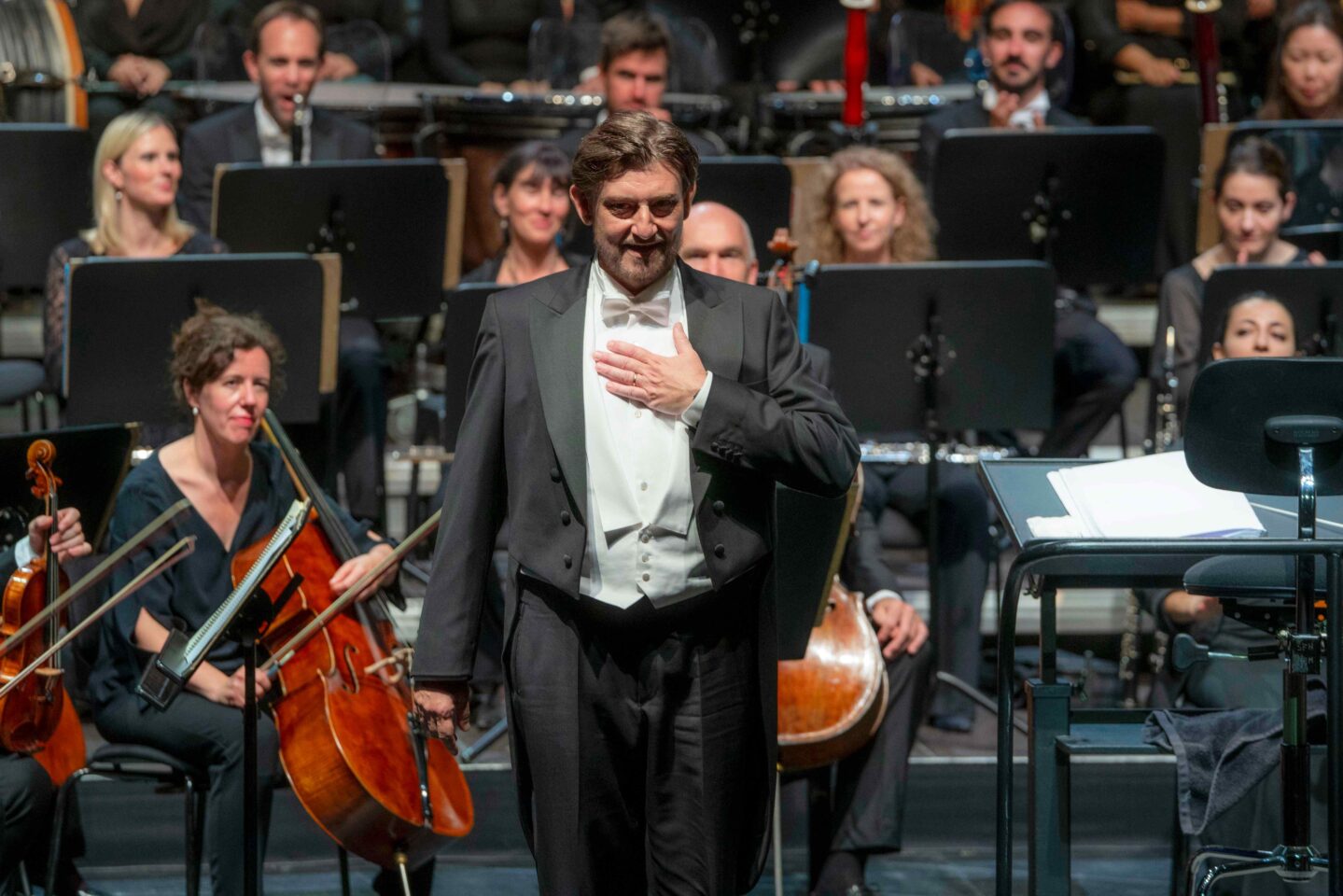
The same can be said for Jean Teitgen in the role of King Claudius, whose long and ardent bass voice makes a powerful impact. Equally thrilling is the revelation of tenor Julien Henric as Laertes (he was Marcellus at the Opéra de Paris and will soon be Melot at the Opéra de Genève in Tristan und Isolde), who had previously won three prizes in the « Jeunes Espoirs » vocal competition by Raymond Duffaut in Avignon. Since then, a promising career has blossomed, making him undoubtedly one of the young French vocal artists on whom we can now rely.
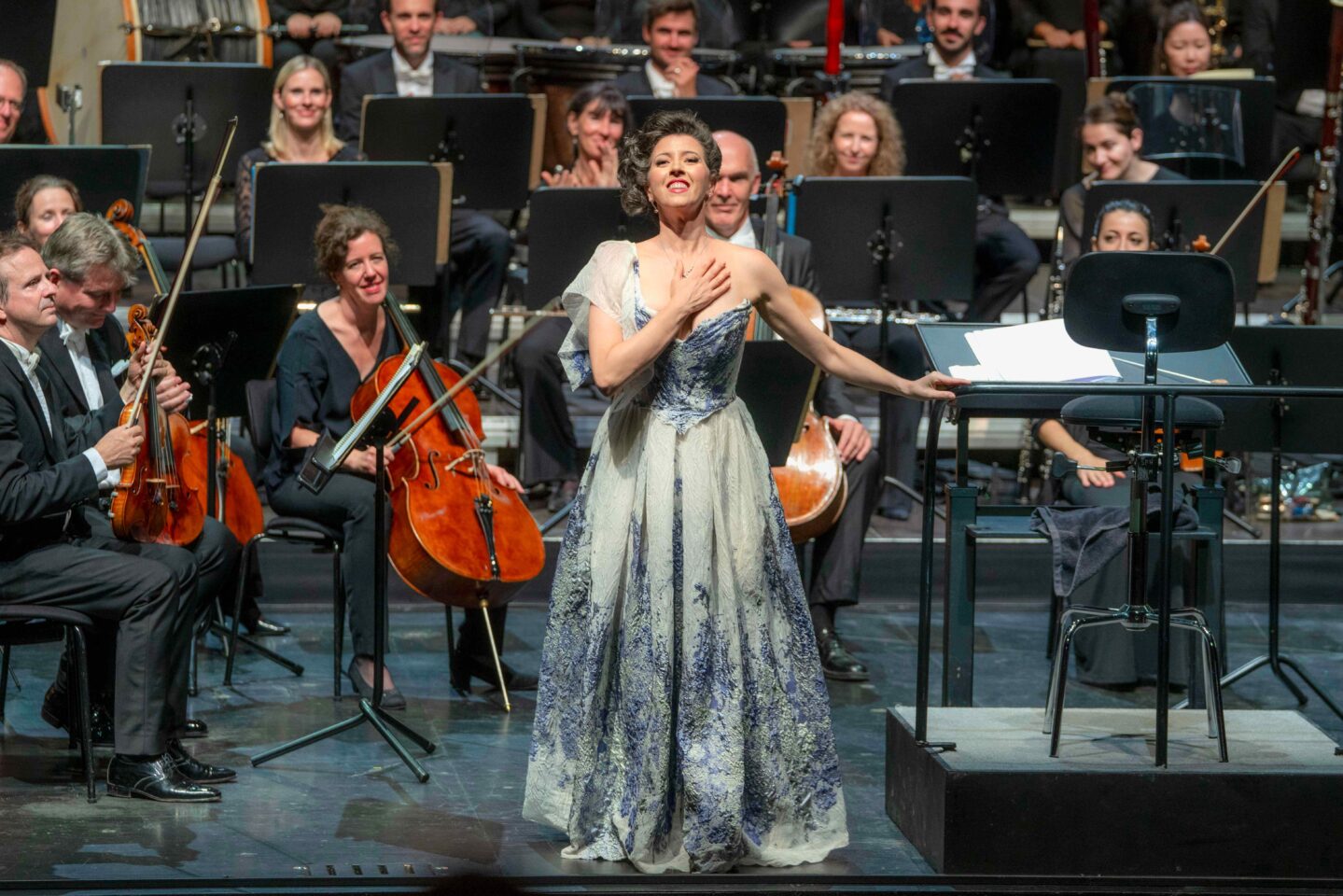
Alongside them—and following her remarkable Lucie de Lammermoor (in its French version) at the Aix-en-Provence Festival in 2023—we were delighted to see the return of American soprano Lisette Oropesa. With her flawless French and her crystalline voice, which is the epitome of bel canto, she does justice to the role of Ophelia, performing with dazzling technical virtuosity, ideal grace, and infinite emotion. The voices of Hamlet and Ophelia find a perfect balance in their duets.
In the role of the ghost of the deceased king, Clive Bayley unfurls a suitably sepulchral voice. Other high-caliber artists invest what are often referred to as « secondary roles. » Their talent is worth highlighting: Jerzy Butryn as Polonius, Liam James Karai as Horatio, Raúl Gutiérrez as Marcellus, Ilya Silchuk as the First Gravedigger, and Seungwoo Simon Yang as the Second Gravedigger.
It is also necessary to acknowledge the precise and grandiose orchestral direction of Bertrand de Billy, who brings so much to this Hamlet. The conductor, with his perfect knowledge of the work (as evidenced by his DVD recording at the Liceu in Barcelona), demonstrates an exceptional command of both the instrumentalists and the choir, appearing to know the piece inside out.
At the risk of being accused of chauvinism, how beautiful the French repertoire is when it is played and sung with such style and with an expansiveness that does not neglect even the smallest detail! An evening that, having won over an enthusiastic audience, will undoubtedly be remembered as a highlight of the 2024 Salzburg Festival
Christian Jarniat
traduction Cécile Day-Beaubié
